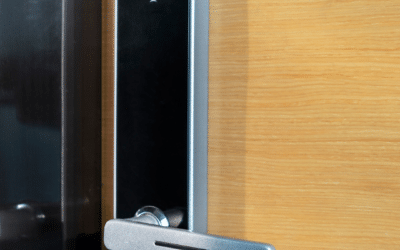A new commercial construction project is a major undertaking with many moving parts. When you’re getting started, it can all seem overwhelming, but if you take the time to consider these 10 critical factors, such as what to consider before starting a commercial construction project, your project will be set up for success.
It is critical to consider location and exactly what type of building best suits the business that it is being constructed for. Zoning permits should be obtained as early as possible. Setting a realistic budget, as well as obtaining proper financing, can save you potential months, or even years, of delays, as will setting a realistic timeline for the project and sticking to it. Next, it is important to consider installing high-efficiency and environmentally friendly systems, as well as what the long-term maintenance of these systems and the building as a whole will look like. Of course, hiring the right contractor with relevant experience, and with whom you have good communication, is vital for any successful construction project.
Table of Contents
1) Building Type
This may seem like an obvious point, but the type of building you choose is extremely important and varies greatly depending on its intended use. Buildings differ in major ways when it comes to size, materials used, level of fire resistance, etc., and there are different requirements and elements to consider for each type. Is this a medium-scale project or a large-scale project? What design features are required for your specific business? These types of questions need to be some of the first things taken into consideration.
2) Location
Just as the type of building you want to construct varies depending on its intended use, so does the best location of the building. Choosing the right location will save you headaches later on, as misjudging such a crucial aspect of the project will result in needing to make major sacrifices or even totally uproot the project later on. Things to consider include whether you need the building to be easily accessible to customers, whether your business will reach the right people, whether there is a need for a business like yours in a specific location if your business will cause any environmental issues, etc. Also, in terms of the physical space itself, is it actually possible to accomplish what you are envisioning?
3) Zoning Permits
Zoning is essentially the tool the government uses to regulate land use in order to balance the interests of the public and the private landowner’s right to use their land as they please. Once you have selected the location for your project, you will need to prepare the necessary documents and information, such as the site plan, floor plan, building elevation, and a written description of the purpose of the building to present to the city for approval.
4) Budget and Financing
Prepare an extensive, complete list of all the expenses going into your construction project. Bring it to a reasonable total and even include a little extra to account for any unforeseen costs. Experts tend to recommend adding an extra 5 to 10 percent for this purpose. Obtain financing as early as possible. You definitely do not want to embark on a major project that you don’t actually have the money for; there is just about no better way to set a project up for failure.
5) Timeline
Depending on the scope of the project, commercial construction can take anywhere from weeks to years. Building a small café is much different than building an airport! Therefore, it is important to take all variables into consideration and develop a realistic timeline. Creating a timeline and sticking to it will also help keep the process focused and moving forward in a productive, structured manner.
6) Energy Efficient Systems
It is highly recommended that you consider utilizing energy-efficient systems in your building. An efficient HVAC system and lighting system will save you a fortune in energy bills, as well as cut down the number of harmful byproducts released into the environment. It is important to consider these systems early on as they can majorly influence aspects of the building’s design.
7) Long-Term Maintenance
Consider the long-term maintenance of the systems utilized in the building, as well as the overall general maintenance of the building. Try to picture several years into the future; are the proper resources available to keep everything running smoothly?
8) Hiring the Right Contractor
The best way to find a good contractor is through referrals from people you trust. If someone you know had a positive experience with a contractor who can do the work you specifically need them for, you will likely have a positive experience as well. You want to hire a contractor with the right experience, so don’t hesitate to directly ask them about their past work and what they are capable of.
9) Communication with the Team
Along with finding the right contractor for the job, you want to make sure you have good communication with them and the rest of the team. A team that cannot communicate is bound to wind up having issues. Be sure to emphasize the importance of communication when you are in the process of hiring a contractor.
10) Delays Happen!
Commercial construction is a large, complicated undertaking with many different processes going on at once. This is simply the nature of the beast, so some delays are likely to occur—and that’s okay! If you take into consideration potential delays, as mentioned above, you can factor them into your budget and timeline. If you don’t work possible delays into your plans, you will be unable to deal with issues when they inevitably come up, worsening the situation and potentially causing a domino effect of more and more delays.
Set up your commercial construction project for success.
When it comes to commercial construction, there are a lot of spinning plates to manage. However, if you follow these tips on what to consider before starting a commercial construction project, things should move along smoothly. Contact Remington Builders Group today to make sure all your bases are covered for your new project!
Do I need to have inspections done before construction?
Yes. In planning and development, specific environmental tests will need to be conducted and sewer lines and fire hydrants will need to be checked. Other specific inspections may need to be conducted based on the type of building being constructed.




0 Comments